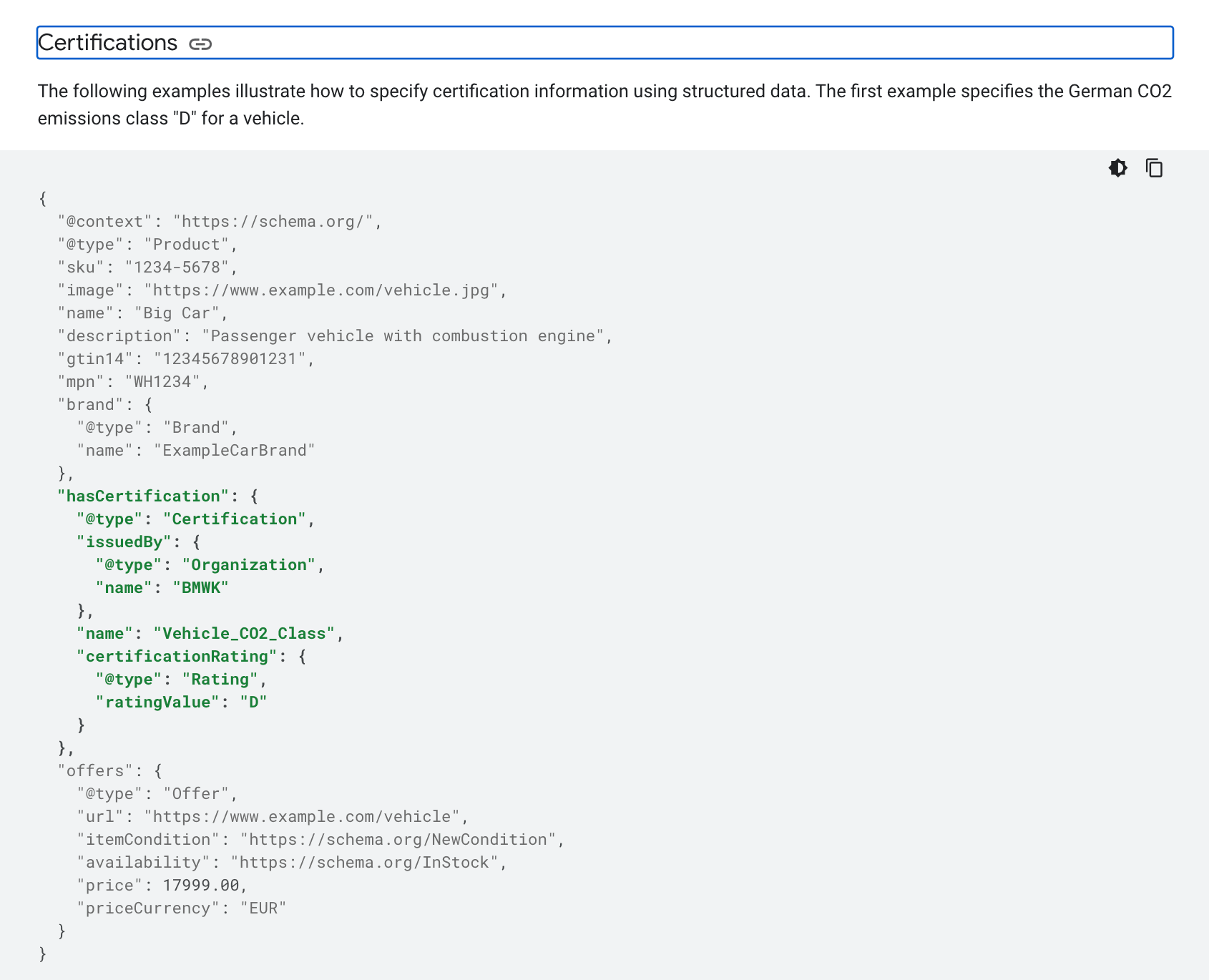/
SEO
/
0 min read
Search Engine Recap - Week 40 (2024)
Here’s your weekly overview of the most important news from the search engine world, keeping your SEO strategy ahead of the competition. Welcome to week 40.
This week brought several updates in search, including changes to Product Markup guidelines, the introduction of a new Google tool, and expanded AI-powered search results from both Google and Bing. Here is an overview.
Google Updates Product Markup Guidelines
Google has updated its Product Markup guidelines and introduced two new best practices for eCommerce websites.

First, Google now recommends placing Product structured data directly in the original HTML for better indexing and faster shopping results.
Second, while JavaScript-generated markup is still supported, Google warns that it may lead to less frequent and reliable crawls.
Merchants relying on JavaScript for product data should ensure their servers can handle increased crawler traffic to avoid issues with rapidly changing content like prices and availability.
Expanded Support for Structured Data
Google has also expanded its support for structured data by introducing a new "Certification" type, replacing the previous "EnergyConsumptionDetails" markup.
This update allows retailers and eCommerce sites to include more detailed certification information for products, increasing global relevance and accuracy.

The new Certification markup enables a wider range of product standards to be displayed, and businesses should update their structured data by April 2025 to maintain optimized product listings in Google Search.
Google Introduces 'CrUX Vis'
Google has rolled out a new tool called 'CrUX Vis', designed to help website owners visualize Core Web Vitals trends and performance data.
Using data from the Chrome User Experience Report (CrUX), it provides detailed insights into how users experience websites.

The tool allows users to segment data by origin, device, and time period, offering views on Core Web Vitals, load performance, interactivity, and visual stability.
This tool is useful for improving domain performance and understanding long-term trends.
Google Launches New AI Results in the U.S.
Google has launched AI-organized search results in the U.S., starting with recipe and meal searches on mobile devices.
The new format brings together various content types, such as articles, videos, and forum discussions, in a personalized, full-screen experience, delivering more comprehensive and relevant results.
Additionally, Google has expanded its AI-driven search tools with improvements in both visual and auditory search.

These updates include new features in Google Lens, such as AI-powered video analysis and voice input for searches based on photographed objects, as well as song identification via Circle to Search.
Google has also introduced ads in AI-generated search results, which could impact SEO strategies moving forward.
Bing Expands Its AI Features
Bing has also extended its AI-powered generative search capabilities to handle more complex, information-seeking queries.

Users in the U.S. can now access this beta feature by typing “Bing Generative Search,” which offers suggestions and detailed results for queries like “how to run a one-on-one” or “how to remove background noise from podcasts.”
Google Phases Out Support for the "Noarchive" Meta Tag
Finally, Google has officially phased out support for the "noarchive" meta tag, which previously prevented search engines from storing cached versions of websites.
This comes after the removal of the cache search operator, signaling a shift away from Google’s cache feature.

Although Google no longer uses the "noarchive" tag, other search engines may still support it.
This change reflects advancements in search technology, with Google now linking to the Wayback Machine for historical page views rather than relying on its own cache.
Takeaways and Recommendations
Week 40 was packed with updates from the search engine world.
Both Google and Bing rolled out updates to AI-powered search results, reinforcing the direction search is headed. Those who keep pace with these changes will have a greater chance of success.
The week also saw important updates to Google’s documentation, from Product Markup to robots meta tags. Make sure to review these documents to keep your SEO strategy up to date.
Finally, Google’s introduction of ‘CrUX Vis’ is an exciting addition, offering businesses better insights into real-world user experiences. This once again highlights the importance of a technically optimized domain for top rankings.
Need help understanding the latest updates and how to integrate them into your SEO strategy? Reach out to Bonzer. As a specialized SEO agency, we’re focused on helping businesses achieve top search engine rankings.

CPO & Partner
Thomas is the CPO (Chief Product Officer) and Partner at Bonzer, which means his day-to-day focus lies in constantly analyzing Google's algorithm and developing SEO as a product. Thomas has worked with SEO for several years with a strong passion for sharing his knowledge on how businesses can best implement SEO into their operations. In addition to Bonzer, Thomas contributes his expertise to readers at publications like Search Engine Journal, DanDomain, and Detailfolk. He also teaches Digital Media Strategy at Copenhagen Business School and SEO at DMJX in Copenhagen. If you have any questions or requests regarding the SEO universe, feel free to contact him at [email protected].

Let us show you an SEO strategy that can take you to the next level
A brief meeting, where we review your position in the market and present the opportunities.
Let us show you an SEO strategy that can take you to the next level
A brief meeting, where we review your position in the market and present the opportunities.